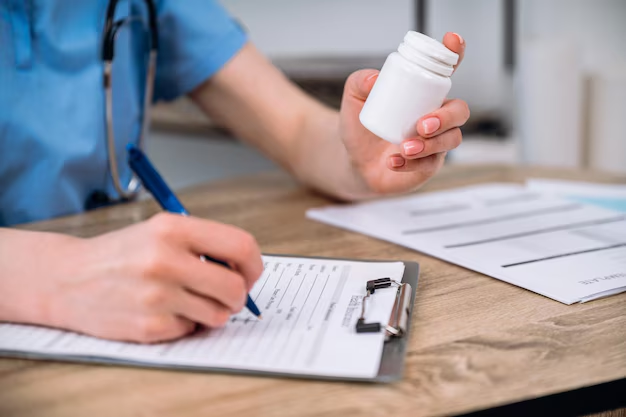Does Aleve for Arthritis Interact With Other Medications? Here's What You Should Know
Living with arthritis can be challenging, and finding effective pain relief is often a priority for those affected. Aleve, a popular over-the-counter medication, is a go-to choice for many due to its effectiveness in managing arthritis-related pain. However, knowing about drug interactions is crucial to ensuring safe and effective use. This article explores the potential interactions between Aleve, which contains the active ingredient naproxen, and other medications.
Understanding Aleve and Its Use in Arthritis
Aleve is part of a group of medications known as nonsteroidal anti-inflammatory drugs (NSAIDs). It's widely used for relieving pain, reducing inflammation, and alleviating symptoms of arthritis. The convenience of being available without a prescription makes Aleve a popular choice.
How Does Aleve Work?
Aleve works by inhibiting enzymes called COX-1 and COX-2. These enzymes help produce prostaglandins, which promote inflammation, pain, and fever. By blocking these enzymes, Aleve reduces inflammation and pain, making it effective for arthritis management.
Potential Medication Interactions With Aleve
While Aleve is effective, it's also important to know that it can interact with other medications, potentially causing unintended side effects. Let's explore some of these interactions:
Blood Pressure Medications
NSAIDs like Aleve can sometimes reduce the effectiveness of certain blood pressure medications, such as:
- ACE Inhibitors: Medicines like lisinopril and enalapril.
- Angiotensin II Receptor Blockers (ARBs): Including losartan and valsartan.
- Beta-blockers: Such as metoprolol and atenolol.
Impact: Aleve can lead to increased blood pressure, where monitoring becomes crucial.
Anticoagulants and Antiplatelet Drugs
People on blood-thinning medications need to be particularly cautious:
- Warfarin: Aleve can enhance the effects of warfarin, increasing bleeding risks.
- Aspirin: When combined with Aleve, there's an increased risk of gastrointestinal bleeding.
Considerations: Regular medical monitoring is advised to manage potential bleeding risks.
Other NSAIDs
Combining Aleve with other NSAIDs like ibuprofen can increase the risk of side effects without enhancing pain relief.
Advice: Stick to one NSAID at a time unless advised otherwise by a healthcare professional.
Corticosteroids
Medications like prednisone are used for various inflammatory conditions, including arthritis. When taken with Aleve, there's a higher risk of gastrointestinal bleeding.
Suggestion: Discuss any corticosteroid use with your doctor before combining it with Aleve.
What to Watch Out For
Knowing what symptoms to watch for can help you use Aleve safely. Here are some signs that you might be experiencing an interaction:
- Gastrointestinal Issues: Nausea, stomach pain, or any signs of bleeding.
- Kidney Function: Reduced urination or increased blood pressure.
- Cardiovascular Changes: Unmanageable high blood pressure.
- Increased Bleeding: Easily bruising or abnormal bleeding.
Best Practices for Taking Aleve Safely
Given these potential interactions, you might wonder how to take Aleve safely. Here are some tips:
Consult With Healthcare Providers
Before making Aleve a part of your routine:
- Communicate: Discuss all medications you're currently taking, including OTC drugs and supplements.
- Inform: Make sure your healthcare provider knows about any medical conditions you have.
Monitor and Adjust
- Blood Pressure: Regularly monitor your blood pressure if you are on antihypertensive drugs.
- Periodic Testing: Have your kidney function and blood counts checked periodically, especially if you’re on long-term NSAID therapy.
Mindful Usage
- Dosage: Stick to the recommended dosage to minimize side effects.
- Duration: Avoid using Aleve for extended periods without medical supervision.
Alcohol and Lifestyle
Alcohol: Limit alcohol consumption as it can exacerbate the gastrointestinal effects of Aleve.
Exploring Alternatives to Aleve
Although Aleve is effective, it's not the only option. Here are a few alternatives:
Topical NSAIDs
For localized joint pain, topical NSAIDs like diclofenac gel can be effective.
Lifestyle Adjustments
- Diet: Incorporating anti-inflammatory foods can benefit arthritis management.
- Exercise: Regular, gentle exercise helps maintain mobility and reduce pain.
Complementary Therapies
- Physical Therapy: Tailored exercises focusing on strength and flexibility.
- Acupuncture: Can help in managing chronic pain.
Consult With a Specialist
For chronic or severe arthritis, a rheumatologist can provide guidance on advanced treatment options, which might include disease-modifying drugs or biologics.
Navigating NSAIDs and Arthritis: Making Informed Choices
Understanding drug interactions involves more than just knowing which medications don’t mix well. It’s about empowering yourself with the knowledge to make informed choices that benefit your health and well-being. By staying informed and communicative with healthcare professionals, using Aleve for arthritis relief can be a safe, effective part of your treatment plan.
Key Points to Remember:
- Discuss Medications: Always inform healthcare providers about all the medications you're taking.
- Monitor Health: Keep track of any changes in your health, particularly blood pressure and bleeding.
- Follow Guidelines: Stick to recommended doses and durations, and avoid mixing NSAIDs.
- Consider Alternatives: Explore lifestyle changes and other therapies that can complement your treatment.
Using Aleve responsibly allows you to enjoy the benefits of pain relief while minimizing risks, enhancing your quality of life as you manage arthritis.
Summary of Practical Tips
- 📞 Consult Healthcare Providers: Always start by discussing with your doctor.
- 📈 Monitor Health Metrics: Keep an eye on blood pressure and watch for any bleeding signs.
- 🥗 Lifestyle Choices: Maintain a healthy diet and engage in regular exercise.
- 🔄 Consider Alternatives: Explore topical treatments and complementary therapies.
- 💊 Mind Medication Interactions: Avoid combining Aleve with other NSAIDs or blood thinners without guidance.

Related Articles
- Are Bananas Bad For Arthritis
- Are Tomatoes Bad For Arthritis
- Can An Inflamed Nerve Cause Arthritis
- Can Arthritis Be Cured
- Can Arthritis Be Reversed
- Can Arthritis Become Septic After Infection From Injection
- Can Arthritis Cause Numbness
- Can Arthritis Cause Swelling
- Can Cracking Knuckles Cause Arthritis
- Can Cracking Your Knuckles Cause Arthritis
